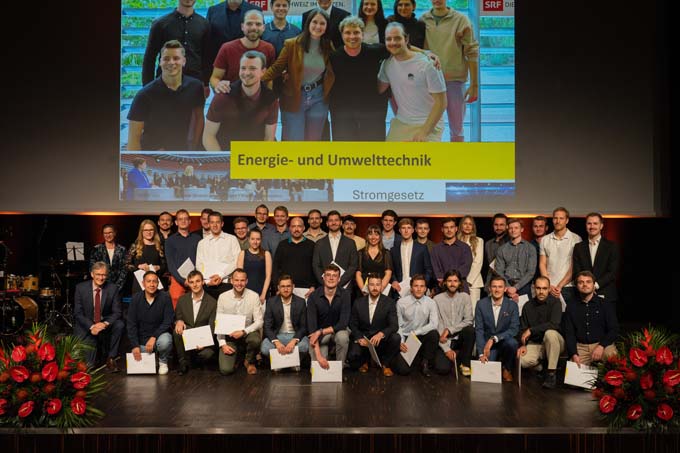Female entrepreneurship: Switzerland offers good framework conditions
Switzerland, Israel and the USA offer the best framework conditions for female entrepreneurship. This is shown by the latest Mastercard Index of Women Entrepreneurs, which regularly analyzes the progress of women in business in 58 economies worldwide.

According to the fourth edition of the Mastercard Index of Women Entrepreneurs (MIWE), released in November 2020, Switzerland is in the top 3 for the first time. The report says it makes visible the socioeconomic contributions of women entrepreneurs and offers insights into factors that promote or inhibit their advancement. MIWE 2020 is based on publicly available data from leading international organizations such as the OECD and the International Labor Organization (ILO) and represents nearly 80 % of the female workforce.
Upswing for female entrepreneurship in Switzerland
In the current edition of MIWE, Switzerland has improved greatly compared to previous surveys. The increase was from 65.2 (rank 11) in 2019 to 71.5 this year. Switzerland owes this rise in part to significantly improved support for SMEs (+37 % from 73.8 to 101.2) and a change in society's perception of entrepreneurs (+45 % from 65.3 to 95) and women entrepreneurs (+26 % from 65.3 to 95). In addition, Switzerland has so far been one of the most successful economies in the world in granting COVID-19 aid packages and emergency aid to companies (rank 6).
Gender-oriented policy promotes women's entrepreneurial success
Ahead of Switzerland in first place, Israel is the world's leading country for female entrepreneurship, moving from 4th place to first in 2019. Israel's top position makes it clear that gender-specific support measures are achieving rapid and significant results. With an ambition to double the number of female entrepreneurs within two years, Israel's success is due to targeted government support for SMEs.
The economies with the best framework conditions for women entrepreneurs in 2020 present themselves as follows:
| Israel | 74,7 |
| United States | 74,0 |
| Switzerland | 71,5 |
| New Zealand | 70,1 |
| Poland | 68,9 |
| United Kingdom | 68,7 |
| Canada | 68,6 |
| Sweden | 68,3 |
| Australia | 67,5 |
| Spain | 67,3 |
MIWE 2020 results confirm that female entrepreneurship thrives especially in high-income and developed economies such as Switzerland, Israel, the United States, New Zealand, and Poland, where the level of prejudice against female entrepreneurs is low, access to education and financial support is high, and the entrepreneurial environment is good. Most countries (34 out of 58) show stable MIWE scores ranging from 60 to 70 such as Thailand (66.9), Taiwan (66.6), Colombia (66.3), the Philippines (65.5), France (65.1), Russia (64.6) and Germany (63.0).
COVID-19 leads to setbacks, but also holds opportunities
Women have been particularly hard hit by the COVID-19 pandemic: In the high-income economies studied, such as Israel, Singapore, Switzerland, and the United States, 70 % of women entrepreneurs reported experiencing disadvantages as a result of the Corona crisis. Overrepresentation in industries most affected by the economic downturn and increasing pressures from childcare are just some of the factors that put women in a particularly difficult position.
At the same time, the report sees signs that the pandemic could prove to be a catalyst encouraging decision-makers to take gender-specific measures: Women politicians in particular have shown leadership in crisis management around the world, boosting the reputation of female executives. Moreover, during the crisis, it is evident that women have a high capacity to adapt: 42 % of female entrepreneurs surveyed switched to a digital business model since the start of the pandemic and 34 % identified new business opportunities.
Further promoting female entrepreneurship
Daniela Massaro, Country Manager of Mastercard Switzerland comments on the current situation as follows: "A crisis will always highlight weaknesses in the system and COVID-19 has done that in spades. We see the extent of inequality, but we also perceive positive momentum and progress. The question is: Are we brave enough to seize the opportunity to act accordingly? Or will we stick with a dysfunctional system that will be reinforced by the pandemic? These points should be addressed and considered by decision makers as they take action to move out of the crisis."

Mastercard says it wants MIWE to lead by example in inclusion and diversity, providing an information base that empowers governments, businesses and individuals to take action to implement targeted gender-based support to realize gender parity. In 2020, Mastercard expanded its global commitment to financial inclusion and pledged to bring a total of one billion people and 50 million micro and small businesses into the digital economy by 2025, according to the company's statement. As part of this effort, it said a focus will be on providing 25 million women entrepreneurs with solutions to help them grow their businesses. This will be done through a series of measures that combine funding, mentoring and the development of inclusive technologies.
Source and further information: www.mastercard.com









